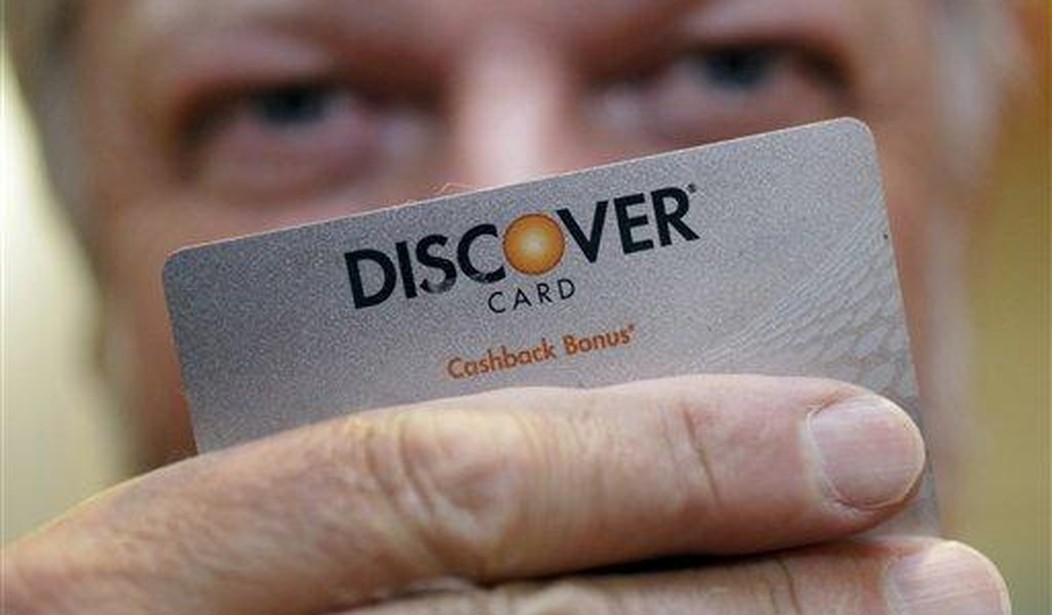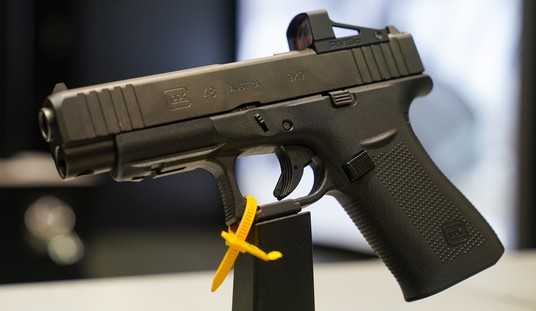It’s been several months since the news broke about new merchant category codes specifically for gun stores and firearms retailers and so far none of the major credit card companies have actually started using them, though that looks to be changing soon. Discover will apparently be the first credit card firm to formally adopt the MCC for gun stores starting in April, which will likely cause many gun owners to stop using their Discover cards at FFLs (and likely elsewhere).
There have also been a number of bills filed in red-state legislatures this year that seek to block the new codes from being used; a development that Reuters frets is “undermining a tool welcomed by gun control advocates.”
The bills were introduced in states including Texas, Florida, Mississippi, Oklahoma, West Virginia and Wyoming. read more
They would prohibit or limit banks or payment processors from using the “merchant category code,” or MCC, approved for gun sellers in September by the Geneva-based non-governmental International Organization for Standardization (ISO), which develops standards on various aspects of technology and manufacturing.
…
The state proposals mark the latest flashpoint for U.S. Republicans in their attack on the growing corporate consideration of environmental, social and governance (ESG) factors – what some conservatives deride as “woke capitalism.”
The Republican state lawmakers sponsoring the bills have said they want to prevent the code from being used to infringe upon gun rights enshrined in the U.S. Constitution’s Second Amendment.
Jansen Owen, a state representative who is the author of legislation in Mississippi, said that as a conservative he worries that the code among other things could be used to track lawful ammunition purchases.
“I don’t want card companies to raise interest rates or fees on merchants as a way to dissuade them” from selling guns and ammunition, Owen told Reuters.
“This MCC would lead to the creation of a backdoor registry” of gun purchases in violation of state law in Florida, state Senator Danny Burgess told a February hearing on legislation he has authored.
To be clear, the new merchant category code does not allow authorities to identify specific purchases, “only” the dollar amount spent at a particular location by a cardholder. But given that the supposed reason these codes were necessary in the first place was to track and identify suspicious transactions, critics are right to be concerned that the new codes will subject responsible gun owners to a draconian monitoring system that could easily generate false red flags for lawful purchases. The MCCs are really more designed to identify financial crimes, not gun trafficking or individuals plotting a mass shooting, but gun control activists are already trotting out their standard talking point that if you’re opposed to the new codes you must be just fine with violent crime.
Adam Skaggs, chief counsel for the gun safety group Giffords Law Center to Prevent Gun Violence, expressed opposition to the Republican proposals.
“The only thing they’re protecting is the rights of criminal gun purchasers,” Skaggs said of the legislation.
Skaggs also said the legislation could lead to unpredictable consequences like driving gun retailers to become cash-only businesses.
“We’re wading into uncharted waters here,” Skaggs said.
I guess the credit card companies themselves must be interested in protecting criminals, since most of them were opposed to the creation of the MCCs in the first place.
Skaggs’ eye-rolling analysis gets it completely backwards. When these codes do start being used, we probably will see many more customers start to pay cash as a result; not because of any legislation designed to thwart the use of the codes but because of the codes themselves.
Peter Pope, a special counsel to Manhattan District Attorney Alvin Bragg, said the codes would allow banks to flag suspicious purchases, for example when people buy a single gun from multiple stores in order to avoid required forms for multiple purchases – just as banks already flag other transactions.
“If the banks could raise their hand when they see indicators of moving money around for narcotics, then they could raise their hand for gun trafficking,” Pope said.
How often does that happen? Generally speaking, if a gun trafficker is using multiple gun shops in an attempt to illegally acquire firearms, they’re also using multiple straw buyers as well. And there’s nothing stopping any would-be gun trafficker from using cash to make their purchases, either now or in the future… though maybe we’ll start seeing anti-gun activists like Skaggs demand an end to cash-based transactions at firearm retailers once it’s become clear that these new merchant category codes aren’t thwarting criminals.
As for the bills that have gun control activists seeing red, it’s been a mixed bag in state legislatures so far. The Wyoming measure never made it out of committee, but the bills in Florida and Mississippi appear to have a better shot of becoming law this year. Between the legislative action and the response from consumers, I think these codes are in for a rocky rollout in the weeks ahead.








Join the conversation as a VIP Member